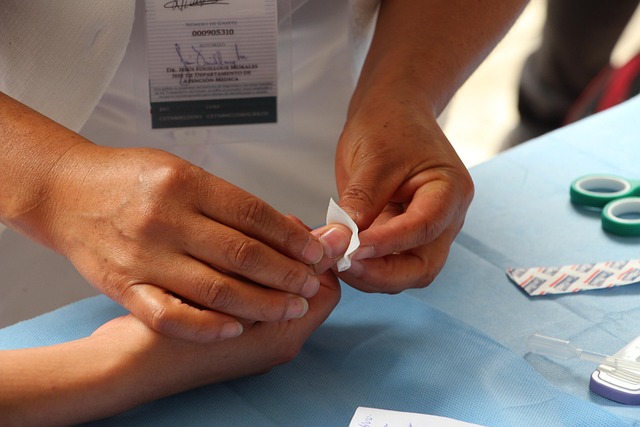24/7 Nursing Support: Essential Care in Modern Medicine
Round-the-clock nursing support delivers continuous patient care by ensuring skilled caregivers are available at any hour. This model improves emergency response, medication management, and monitoring quality, offering peace of mind to patients, families, and healthcare facilities. Learn how 24/7 nursing, specialized training, facility integration, and telehealth options strengthen outcomes and operational efficiency in today’s healthcare landscape.

Continuous Nursing Care: What 24/7 Services Entail
Around-the-clock nursing refers to a coordinated system in which licensed nurses provide uninterrupted clinical attention to patients. These services span routine monitoring of vital signs, timely administration of medications, rapid emergency intervention, and ongoing clinical assessment. Nurses assigned to continuous care must remain vigilant across rotating shifts while delivering consistent clinical judgment and compassionate support.
Training and Competencies for Round-the-Clock Nurses
Providing safe, effective 24/7 nursing demands additional preparation beyond core nursing education. Clinicians commonly complete certifications in emergency care, advanced life support, and medication safety. Training programs also emphasize practical skills such as handover communication, time prioritization, and situational awareness.
Because night and rotating shifts can disrupt sleep patterns and stress management, targeted instruction on circadian rhythm adaptation and fatigue mitigation is essential. Programs often include strategies for staying alert during off-hours, techniques for stress reduction, and systems-based practice to ensure performance remains high regardless of schedule.
Measurable Benefits for Patients
When qualified nurses are present at all hours, patient outcomes improve. Facilities with comprehensive 24/7 nursing coverage report lower mortality rates, fewer preventable medical errors, and higher patient satisfaction metrics. Constant clinical presence shortens response times in emergencies and allows for earlier detection of deteriorating conditions, reducing complications and readmissions.
Continuous care also enhances medication adherence and safety. Regular monitoring ensures doses are given on schedule, adverse reactions are identified quickly, and care plans are adjusted in real time based on a patient’s evolving needs.
How Healthcare Facilities Implement 24/7 Nursing
Successful integration of continuous nursing requires careful workforce planning and operational support. Administrators design staffing models that balance workload, ensure safe nurse-to-patient ratios, and provide reliable handoff protocols between shifts. Investment in supportive environments — including adequate lighting, accessible rest areas, and staffing resources — helps reduce burnout and maintain clinical standards.
Technology plays a key role as well. Electronic health records, remote monitoring systems, and decision-support tools enable nurses to track patient trends more efficiently and coordinate care across departments. Cross-departmental communication and well-documented escalation pathways are vital to maintaining continuity when patients move between units or require specialist input.
Ongoing Education and Career Development
Continuous professional development ensures nurses remain current with evolving best practices. Many healthcare employers offer in-house training on night-shift management, advanced emergency procedures, and the latest medical technologies. Educational offerings often include simulation labs, online modules, and mentorship programs that focus on practical skills for high-acuity situations.
These opportunities not only improve patient care but also support nurse retention by providing clear pathways for advancement and specialization in areas like critical care, geriatrics, and telehealth nursing.
Service Models and Where 24/7 Nursing Is Delivered
| Service Type | Provider Type | Key Features |
|---|---|---|
| Hospital-Based | Acute care centers | Full clinical teams, access to advanced diagnostics and surgical support |
| Home Health | Private agencies | Personalized care in familiar surroundings, tailored care plans for chronic conditions |
| Skilled Nursing | Long-term care facilities | Specialized rehabilitation, geriatric-focused care, extended recovery support |
| Telehealth | Remote monitoring providers | Virtual consultations, continuous remote surveillance, rapid triage |
Prices, rates, or cost estimates mentioned in this table are based on the latest available information but may change over time. Independent research is advised before making financial decisions.
Operational Challenges and Solutions
Maintaining reliable 24/7 nursing comes with challenges. Staffing shortages, shift fatigue, and budget constraints can threaten consistency. Facilities mitigate these risks by adopting flexible scheduling, cross-training staff, and leveraging telehealth to extend clinical reach without overstretching in-person teams.
Data-driven workforce planning helps anticipate high-demand periods and allocate resources where they are most needed. Additionally, fostering a supportive workplace culture and offering wellness resources can reduce turnover and promote long-term workforce stability.
The Future of Round-the-Clock Nursing
As patient needs grow more complex and technology advances, 24/7 nursing models will continue to evolve. Hybrid approaches that combine onsite nurses with remote monitoring and teleconsultations can increase coverage while controlling costs. Ongoing investment in education, staff well-being, and interoperable technology platforms will be essential to sustain high-quality continuous care.
In short, around-the-clock nursing remains a cornerstone of modern healthcare delivery. By combining skilled personnel, targeted training, thoughtful integration, and smart use of technology, healthcare organizations can offer reliable, responsive care at any hour — improving outcomes and reassuring patients and families.
This article is for informational purposes only and should not be considered medical advice. Please consult a qualified healthcare professional for personalized guidance and treatment.






